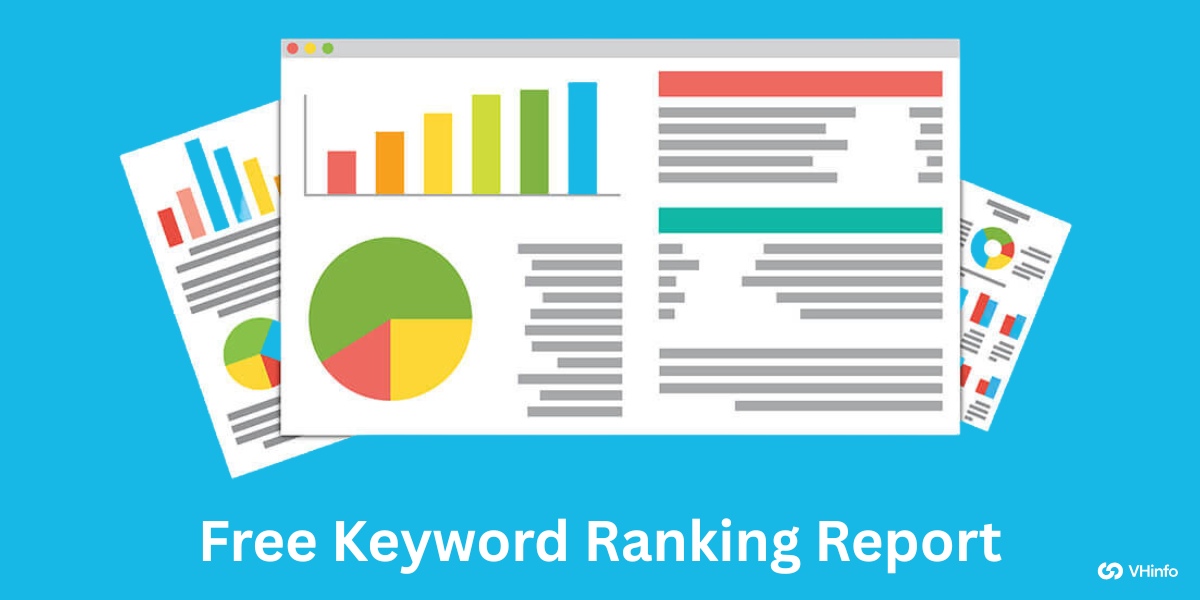Earning a $30 hourly wage is a significant milestone.
But how much of that money do you actually get to keep? Your annual salary before taxes might look impressive, but your final take-home pay can be quite different. The amount of income tax you pay to the federal government and your state has a big impact on your earnings.
This guide will break down what a $30 hourly pay means for your yearly earnings after taxes.
We will look at how your annual income is calculated and what factors, like tax brackets and your filing status, change the amount you see in your paycheck. Getting a clear picture of your finances is the first step toward making smart financial decisions.
We will use a paycheck calculator approach to give you a clear view of your money.
Calculating Your Gross Annual Income At $30 an Hour

Before we talk about taxes, let’s figure out your gross income. This is the total amount of money you earn before any deductions are taken out.
The Standard Formula For Annual Salary Calculation
To calculate your yearly salary from an hourly rate, you can use a simple formula. The calculation assumes a standard full-time job with 40 work hours per week for 52 weeks a year.
- $30 per hour x 40 number of hours per week = $1,200 weekly income
- $1,200 per week x 52 weeks per year = $62,400 gross income
So, an hourly wage of $30 equals a gross pay of $62,400 per year.
This is the starting point before we consider taxes and other deductions. Your annual salary is a key number for your financial planning. It’s important to remember that this calculation does not include potential overtime pay, which could increase your annual income.
Weekly Vs. Bi-Weekly Pay Schedules
How often you get paid, known as your pay frequency, also plays a role in how you manage your money. Common pay schedules include:
- Weekly Pay: You would receive 52 paychecks a year. With a gross income of $62,400, your weekly gross pay would be $1,200.
- Bi-Weekly Pay: You would receive 26 paychecks a year. In this case, your gross pay per paycheck would be $2,400.
While your monthly pay might change slightly depending on the schedule, your total yearly salary remains the same. The pay frequency doesn’t change how much money you make, just how often you receive it.
$30 an Hour Is How Much A Year After Taxes?

Your $62,400 gross income is not the amount you can spend. Taxes will reduce this amount. In the United States, we have a progressive tax system, which means people with higher income levels pay a higher percentage of their income in taxes.
Understanding Federal Income Tax Brackets
The federal government collects federal income tax based on a system of income tax brackets.
For the 2025 tax year, there are seven federal income tax brackets: 10%, 12%, 22%, 24%, 32%, 35%, and 37%. Your taxable income, not your gross income, determines which tax brackets you fall into.
To find your taxable income, you subtract deductions from your gross income. For a single person with no special deductions, we use the standard deduction. For 2025, the standard deduction for single filers is $15,750.
Here’s the math for a single filer earning $62,400:
- Gross Income: $62,400
- Standard Deduction: -$15,750
- Taxable Income: $46,650
Now, let’s apply the 2025 federal tax brackets to this taxable income :
- 10% tax rate on the first $11,925 = $1,192.50
- 12% tax rate on the income from $11,926 to $46,650 = $4,167.00
The total federal income tax liability would be $5,359.50. This is your initial tax bill to the federal government.
The Impact of FICA Taxes (Social Security & Medicare)
Besides federal income tax, you must also pay FICA taxes. These fund Social Security and Medicare. The FICA tax rate is 7.65% of your gross income. This is broken down into:
- Social Security Tax: 6.2% on income up to a certain limit.
- Medicare Tax: 1.45% on all your earnings.
For a gross pay of $62,400, your FICA contribution would be:
- $62,400 x 7.65% = $4,773.60
These social security tax and medicare tax are mandatory and are taken directly out of your paycheck.
State and Local Tax Considerations
Many states and some cities also have their own income tax. This state income tax can significantly affect your take-home pay.
The income tax rate varies widely from state to state. Some states have a flat tax, while others use income tax brackets similar to the federal system. Additionally, some areas have local taxes that can further reduce your monthly income. We’ll look at specific state examples later on.
Factors That Change Your Take-Home Pay From A $30 Hourly Wage

Two people earning the same hourly rate can have very different take-home pay. Your personal financial situation and choices make a big difference.
How Your Filing Status Affects Your Taxable Income?
Your filing status is a key factor. The main statuses are Single, Married Filing Jointly, Head of Household, and Married Filing Separately.
Each status has a different standard deduction and different tax brackets.
For example, the standard deduction for a married couple filing jointly is much higher than for single filers. This means a married couple can earn more money before they start paying federal tax. Your marital status directly impacts your tax liability.
The Role of Tax Deductions and Credits
Tax deductions and tax credits can lower your tax bill. A deduction lowers your taxable income. Besides the standard deduction, you might be able to claim itemized deductions for things like mortgage interest or charitable donations if they total more than the standard amount.
A tax credit is even better. It directly reduces the amount of tax you owe. For example, a $1,000 tax credit lowers your tax bill by $1,000. These are important tools for managing your financial decisions. A tax calculator or a financial advisor can help you find credits you qualify for.
Pre-Tax Contributions (401(k), HSA)
Money you put into certain accounts can lower your taxable income.
- 401(k): Contributions to a traditional 401(k) retirement plan are made before taxes are calculated. This reduces your taxable income for the year. A Roth IRA is another retirement account, but contributions are made after taxes.
- Health Savings Account (HSA): If you have a high-deductible health insurance plan, you can contribute to an HSA. This money is not taxed and can be used for medical expenses.
These pre-tax contributions lower your immediate tax bill and help you save for your long-term financial goals.
Real-World Examples: $30 an Hour After Taxes By State

Where you live has a huge effect on your yearly pay after taxes because of state income tax.
Let’s compare a few states for a single filer earning $62,400 a year.
High-Tax States (California, New York)
States like California and New York have higher state income tax rates.
- California: After federal and state taxes, your estimated take home pay would be around $50,258. The high cost of living in many parts of California can make this salary feel smaller.
- New York: Your estimated net pay would be about $49,666. Like California, New York has a high income tax rate and a high cost of living in its major cities.
Low-Tax States (Texas, Florida)
Some states are known for having a lower tax burden. Texas and Florida are popular examples because they do not have a state income tax.
- Texas: With no state income tax, your annual take home pay would be approximately $52,267. You would only pay federal taxes and FICA.
- Florida: Similarly, your net pay in Florida would also be about $52,267. This can make a big difference in your monthly budget.
States With No Income Tax
There are nine states in the United States with no state income tax on wages: Alaska, Florida, Nevada, New Hampshire, South Dakota, Tennessee, Texas, Washington, and Wyoming.
In these states, a person earning a $62,400 annual salary would have a higher take home pay of $52,267, all other factors being equal.
While New Hampshire doesn’t tax wages, it does tax interest and dividend income. Living in one of these states can provide a significant boost to your monthly salary. Other states with low tax rates include North Dakota and North Carolina, which offer a middle ground.
How to Budget and Maximize Your $30 an Hour Salary?

Making a good wage is one thing; managing it well is another. Good financial planning is essential.
Creating A Monthly Budget Based On Net Income
Once you know your take home pay, you can create a budget.
Start with your monthly income after all taxes and deductions. Track your spending for a month to see where your money goes.
Then, you can create categories like housing, food, transportation, and savings. Allocating a portion of your income to a savings account is a key step toward achieving your financial goals. A budget helps you stay in control of your financial situation.
Strategies to Increase Your Take-Home Pay
There are ways to increase the much money you take home each month.
- Review Your Tax Withholding: When you start a job, you fill out a W-4 form. This tells your employer how much federal tax to withhold. If you consistently get a large tax return, you may be withholding too much. Adjusting your withholdings can increase your monthly pay.
- Look for Tax Credits: Research available tax credits that might apply to you. A tax credit is a dollar-for-dollar reduction of your tax liability.
- Seek Additional Income: Consider part-time work, freelancing, or overtime pay to boost your annual income. This additional income can accelerate your progress toward your financial targets.
- Consult a Financial Advisor: A professional can help you make smart financial decisions and create a plan tailored to your income level and goals.
FAQ’s:
Is $30 an Hour Considered A Good Wage in the US After Taxes?
Yes, a $30 hourly wage, which equals a $62,400 annual salary, is considered a good wage. It is above the median salary in the United States, which was around $59,384, and well above the federal minimum wage of $7.25 per hour.
However, how “good” it feels depends heavily on the cost of living in your area and your personal financial situation.
Why Is My Take-Home Pay Different From Someone Else Earning the Same Hourly Wage?
Your take home pay can differ due to many factors. These include your filing status (marital status), the state income tax where you live, any local taxes, the tax deductions and credits you claim, and pre-tax contributions to accounts like a 401(k) or for health insurance.
What Percentage Of My Income Will Typically Go To Taxes?
The total tax rate can vary greatly but often falls between 15% and 30% of your gross income. This includes federal income tax, FICA taxes (social security and Medicare), and any state income tax. An online hourly calculator or salary calculator can give you a personalized estimate.
What Other Deductions Might Lower Take-Home Pay Besides Taxes?
Besides taxes, other common deductions include premiums for health insurance, dental, and vision plans; contributions to a retirement savings plan like a 401(k) or Roth IRA; and payments for life or disability insurance.
Conclusion
If you earn $30 each hour, you make a strong gross income of $62,400 each year.
But your real pay, after taxes come out, is what matters most for planning your money.
The amount you get to keep changes with federal and state taxes. It also depends on if you file alone or with someone else. Your tax deductions and credits can help lower the amount you pay. You can use a paycheck tool to check how much you will really take home.
Learning about tax rules can also help you handle your money better and reach your money goals. At VH-info, we believe that simple facts lead to better choices. We give useful tips for SaaS link building too. We hope this guide helps you feel sure when making choices about your money.


